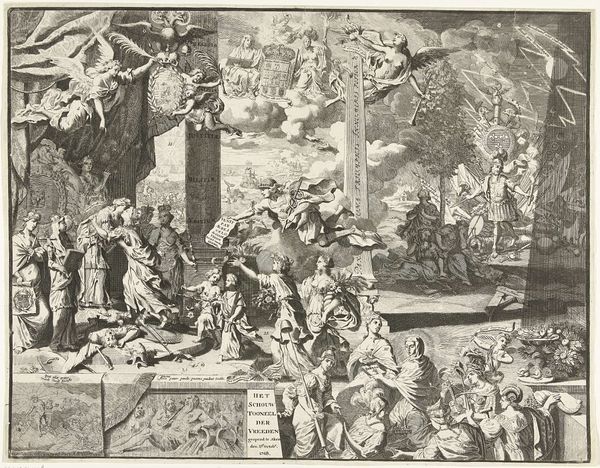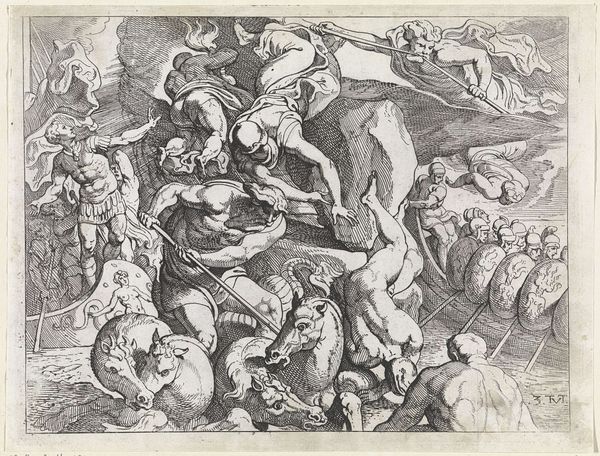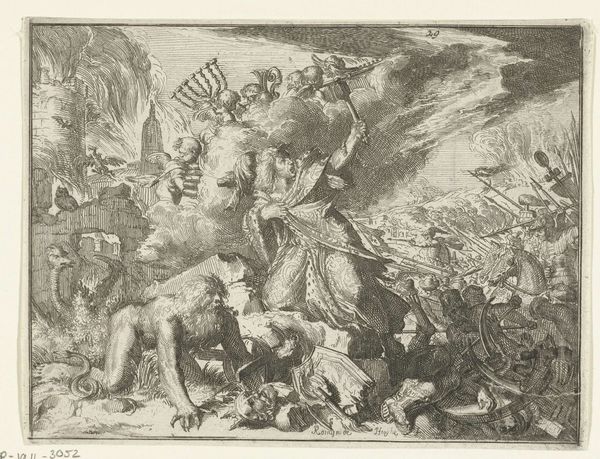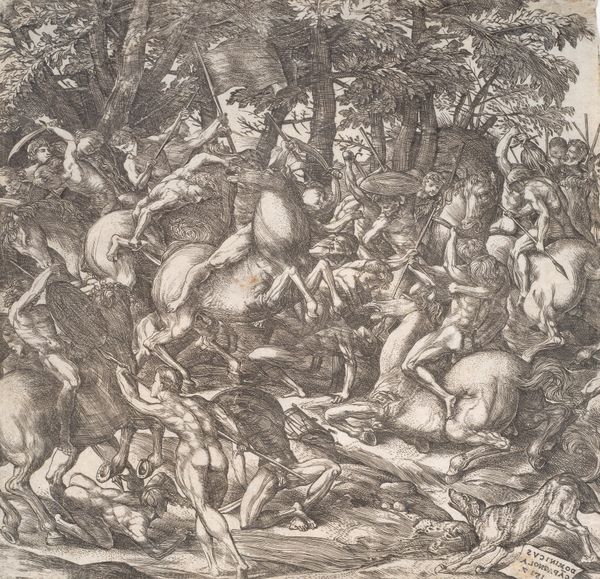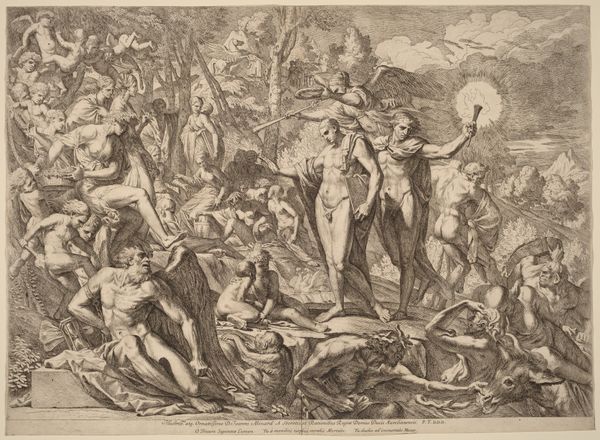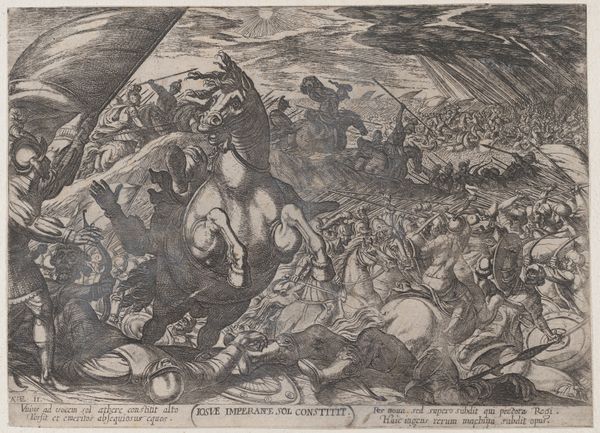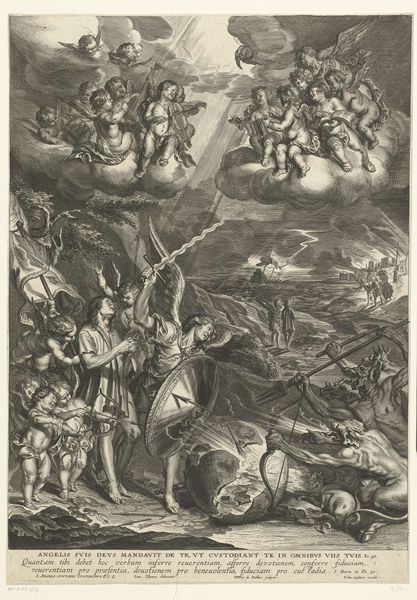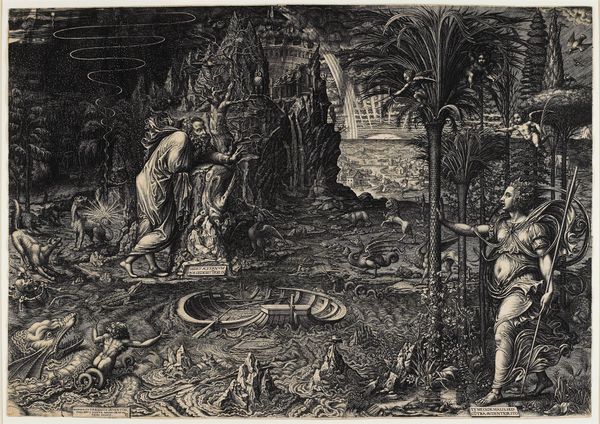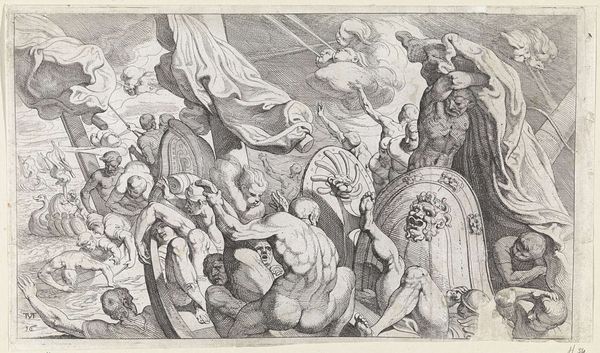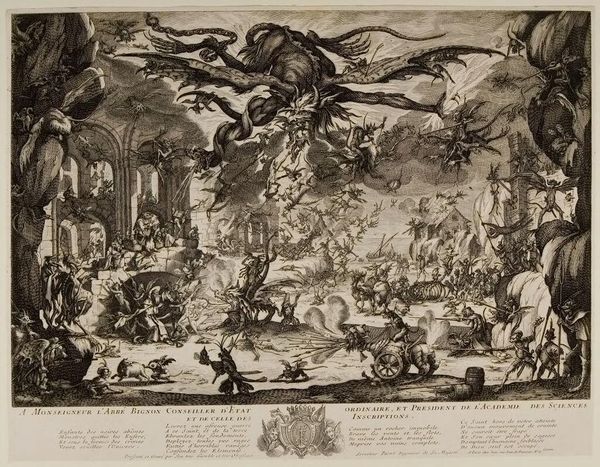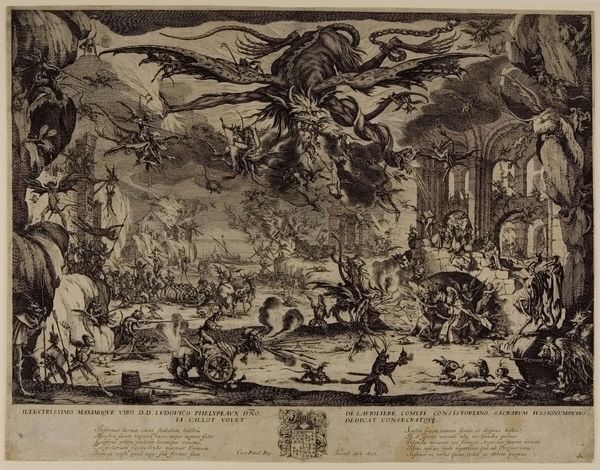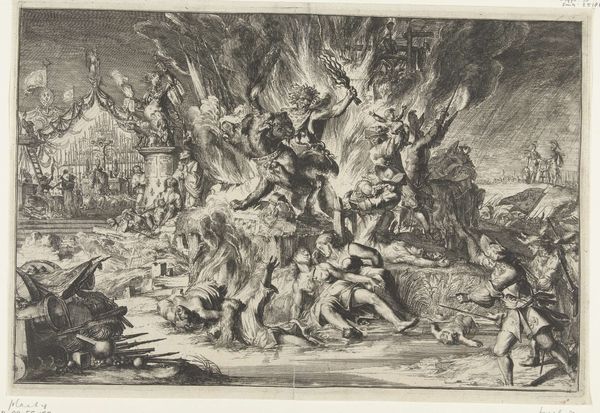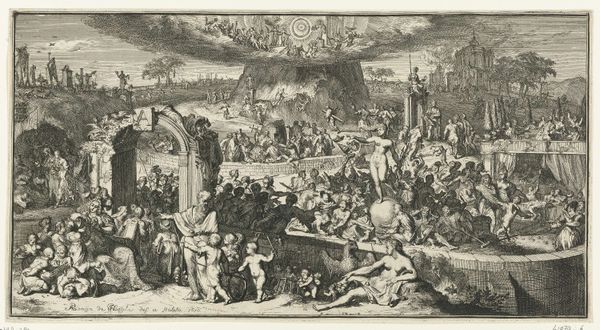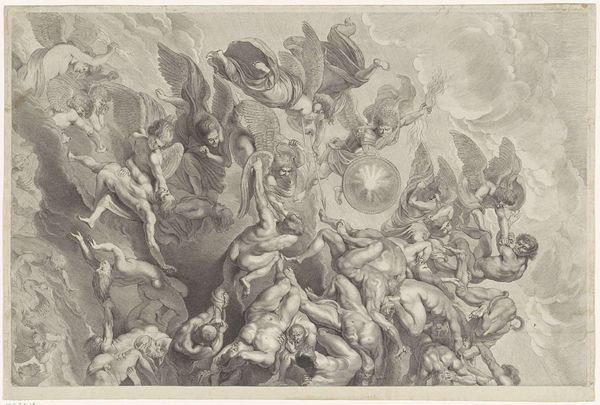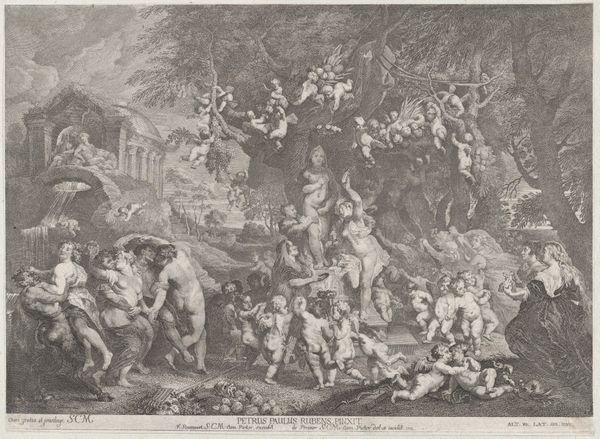
painting, oil-paint
#
allegory
#
narrative-art
#
baroque
#
painting
#
oil-paint
#
figuration
#
oil painting
#
history-painting
Copyright: Public Domain: Artvee
Jan Brueghel the Younger painted this scene of hell, with oils, sometime in the 17th century. The nightmarish vision of torment connects to a broader cultural interest in morality and sin during that period. The image draws on earlier depictions of hell. Think of Hieronymus Bosch, whose paintings of hell are full of similar tortures and demonic figures. Brueghel’s painting reflects the religious and social anxieties of the time, particularly the fear of eternal damnation which was prevalent in 17th century Europe. This was a period marked by religious conflicts, such as the Thirty Years' War. Paintings like these served as a visual warning, reinforcing the Church’s teachings and moral codes. Understanding this painting requires us to delve into the religious literature, sermons, and popular beliefs of the 17th century. By studying these historical resources, we can gain insight into the ways in which art served as a tool for social control, reinforcing the power and authority of religious institutions.
Comments
No comments
Be the first to comment and join the conversation on the ultimate creative platform.
